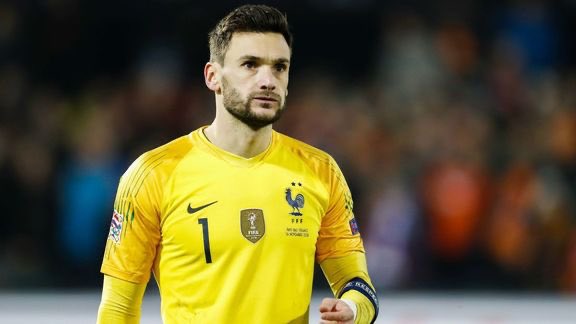France captain Lloris hints that he will not wear a rainbow armband at World Cup to support the Qatari law.
France’s team captain Hugo Lloris hinted during a press conference that he will not be wearing a rainbow-coloured armband during the World Cup games in Qatar to “show respect” to the country’s laws.
In September, eight of the 13 European teams traveling to Qatar, including the defending champions France, joined the “OneLove” campaign, which was first launched in the Netherlands. The move urges players to wear a rainbow-coloured armband to show support for LGBTQ+ during their time in Qatar.
FIFA regulations state that teams must use equipment provided by the governing body and are not allowed to bring their own armband designs to the World Cup.
In addition, the governing body also recently wrote to all 32 World Cup nations asking them to concentrate on football.
Lloris, who mans the Tottenham posts as a goalkeeper, believes that players shouldn’t bear the responsibility of such campaigns.
“Before we start anything, we need the agreement of Fifa, the agreement of the [French] federation,” Lloris said. “Of course, I have my personal opinion on the topic. And it’s quite close to the [French federation] president’s.”
Noel Le Grat, the president of the French federation, previously stated that he would prefer that Lloris not wear it because he does not want his nation to lecture others.
“When we are in France, when we welcome foreigners, we often want them to follow our rules, to respect our culture, and I will do the same when I go to Qatar, quite simply,” Lloris said.
“I can agree or disagree with their ideas, but I have to show respect.”
However, Lloris noted French players will probably come together for collective action in support of Qatar’s observance of human rights.
“We can’t remain insensitive to these issues,” the Tottenham goalkeeper said. “It will be done in a few days, or hours, we will see.”
Anti-Qatar media attacks
Qatar’s treatment of incoming members of the LGBQT community for the World Cup, as well as the waving of the pride flag, has been a hot topic in recent months.
Speaking to Sky News earlier this month, Nasser Al Khater, World Cup Qatar 2022 CEO, insisted that no one will face discrimination during the 29-day tournament.
“At the end of the day, as long as you don’t do anything that harms other people, if you’re not destroying public property, as long as you’re behaving in a way that’s not harmful, then everybody’s welcome and you have nothing to worry about,” said Al Khater.
While the Gulf state is maintaining its anti-LGBTQ+ laws, Al Khater assured that gay fans can hold hands.
“This is a sporting tournament that people want to come [to] and enjoy. Turning it into a platform of political statements I don’t think is right for the sport,” said Al Khater.
“All we ask is for people to be respectful of the culture,” he said, adding that “from what he understands” there are discussions on political messages at the tournament.
Asked about the attendance of members of the LGBTQ community at the World Cup, Qatar’s Amir Sheikh Tamim bin Hamad Al-Thani in May said “everybody is welcome in Doha”.
“We do not stop anybody from coming to Doha with any different backgrounds, any different beliefs, Qatar is a very welcoming country,” the amir told the press during his visit to Berlin.
With the global spotlight being placed on the Middle East’s first ever FIFA World Cup, host nation Qatar has been the subject of incessant Western scrutiny over its human rights record, especially with regards to migrant labourers.
However, officials say much of the criticism and campaigns to boycott the event largely overlooks efforts made by Qatar to address such concerns, including widespread labour reforms.







